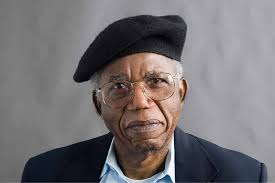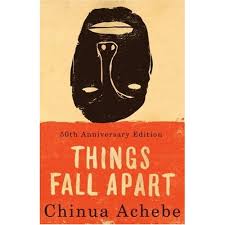Please read the article here.
Do not be surprised if you find it difficult...it's written for a college level audience. Nonetheless, it also contains some ideas that you CAN manage, given sufficient effort.
In order to find some main ideas, read carefully and copy down (in your notebook) the sentences (or even parts of a sentence) that you think are important. Look for perhaps five or six ideas that you DO understand...don't worry about other ideas that you don't get.
Here are some questions that might help you. If you look for the answers to these questions in the essay, you may move in the direction of the important points.
1. Why is Chekhov considered an innovative artist, that is someone who altered his art form?
2. How do we know that Chekhov is considered an influential artist, someone who other artists admire so much they imitate some of his work?
3. This article is mainly about another story (The Lady with the Pet Dog), but it relates directly to Gooseberries. How so?
Friday, August 30, 2013
Wednesday, August 28, 2013
Re Reading
Please reread the two stories. Do The Necklace tonight and and Gooseberries for Friday.
Try to find language or details suggestive of the issues of class, class system and power we talked about.
Try to find language or details suggestive of the issues of class, class system and power we talked about.
Tuesday, August 27, 2013
Read the story Gooseberries by Chekhov in your text. It is also here if you have not bought the book yet.
Remember: don't just settle for the first three elements of fiction. Get MOTIFS as well, based on today's lesson.
Monday, August 26, 2013
Short Fiction Reading
The author, rocking a most excellent 'stache.
We have ID'd 8 key elements of fiction. Bear them in mind as you read the story The Necklace by Guy de Maupassant.
Your reading quiz will ask you to connect the elements to the story.
If you do not have the book yet, the story is online here.
Wednesday, August 21, 2013
Thursday and Friday
Please be prepared to write about the books you read this summer and we have discussed this week. One day we will write on Achebe and one day on Martel. The Achebe book will count for the more of the grade since we have covered it more.
Also please sign up for your Quizlet account.
Follow the directions for adding a class by searching for this class: Honors 9th Grade @BC.
Also please sign up for your Quizlet account.
Follow the directions for adding a class by searching for this class: Honors 9th Grade @BC.
Monday, August 19, 2013
Practice
Use the link there to practice your understanding of the book.
Feel free to look around the site to help you understand.
Feel free to look around the site to help you understand.
Thursday, August 15, 2013
Go to the link here and take the online quiz to practice.

When you have finished, create a set of three or four questions that would require a short, written answer, perhaps five to ten sentences. Imagine you are responsible for creating the summer reading test. How would you phrase the questions. Write them down and bring to class Friday for discussion.
When you have finished, create a set of three or four questions that would require a short, written answer, perhaps five to ten sentences. Imagine you are responsible for creating the summer reading test. How would you phrase the questions. Write them down and bring to class Friday for discussion.
Wednesday, August 14, 2013
For Thursday
Please watch the video at yesterday's post below (the one we started in class today) and listen. 
Be prepared to write about the following questions in lass tomorrow.
What is the difference between motherland and fatherland for Okonkwo's people?
What is the "song" about that the uncle refers to?
Achebe says the uncle makes an appeal to REASON, not to faith. How is this true?
How did the two letter writers express different opinions of the passage?
Monday, August 12, 2013
For the First Day
Hi all: Please take a few minutes and read over the material at these links.
Think about the material in connection with what you have read over the summer. You are not responsible for memorizing all the info at these pages. YOU ARE responsible for taking some of the ideas and relating them to your reading. Read with an open mind. Find something, even just a few sentences/ideas that interest you.
After you have read and considered the entries in terms of you reading, plan out some questions and/or comments you might make in class when we start our conversations about your reading.
Think about the material in connection with what you have read over the summer. You are not responsible for memorizing all the info at these pages. YOU ARE responsible for taking some of the ideas and relating them to your reading. Read with an open mind. Find something, even just a few sentences/ideas that interest you.
After you have read and considered the entries in terms of you reading, plan out some questions and/or comments you might make in class when we start our conversations about your reading.
Subscribe to:
Posts (Atom)